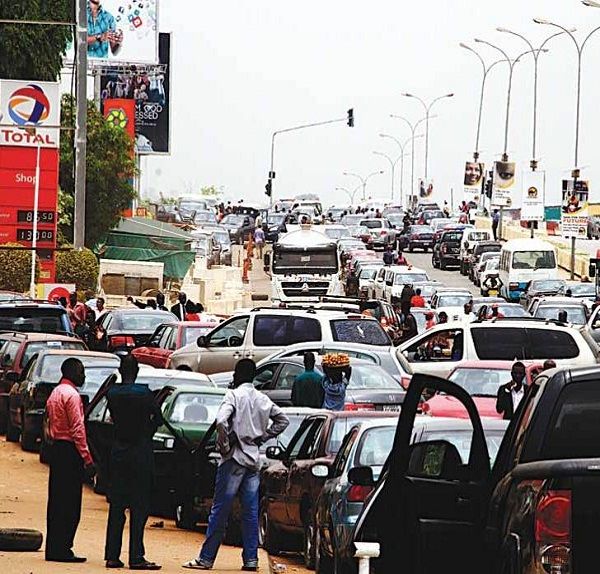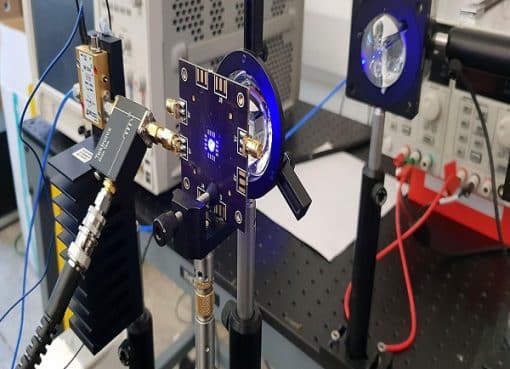Regulatory authorities and managers of Nigeria’s downstream oil sector have not lived up to their responsibilities in preventing or addressing the recurring petrol scarcity that always plunges Nigerians into untold hardship whenever it occurs
For the past few months, Nigerians have been subjected to excruciating pains imposed on them by the scarcity of petrol ravaging the country.
The problem is compounded by the seeming lack of lasting solution from the authorities and industry managers, especially the Nigerian National Petroleum Company Limited, the sole petrol importer and the Nigerian Midstream and Downstream Petroleum Regulatory Authority (NMDPRA).
At the moment, despite the subsidy regime being operated in the country where the government spends a humongous amount of money on imported petrol annually, the pump price of the product has hit the roof.
Depending on the location one lives, petrol has been selling for between N250 and N650 per litre for the past few months, even when the government claimed that the official regulated pump price was N165 before it secretly adjusted it to N185 last January.
Today, Nigerians are coming to terms with different fuel prices, ranging between N250 to N650 per litre as obtained in many filling stations, especially those owned by members of the Independent Petroleum Marketers Association of Nigeria (IPMAN).
However, a litre of petrol is sold at a regulated price of N185 at NNPC’s filling stations and that of the Major Oil Marketers Association of Nigeria (MOMAN).
Despite this price disparity, Nigerians are still scrambling for the product.
The ready response from the authorities -NNPC and NMDPRA alike has always been that there is enough petrol in stock and that the people are only engaging in panic buying, amongst other flimsy responses
NMDPRA Serving Marketers’ Interest
Nigerians have described the NMDPRA as a toothless bulldog as it cannot sanction or reprimand erring marketers engaging in sharp practices and causing artificial fuel scarcity.
Worse still, the regulator has refused to tell Nigerians what the actual pump price of petrol is currently but has continued to watch marketers hike prices as they like.
Shockingly, the Zonal Coordinator, South-west, NMDPRA, Mr. Ayo Cardoso, appeared on ARISE NEWS Channel last Sunday night and bluntly refused to disclose the current pump price of petrol when asked to do so by the interviewers.
In January, the government secretly increased the ex-depot price and pump price of petrol from N148 to N170 or thereabout and N165 to N185, respectively.
The same government also denied making any changes in prices when they faced backlash from both the media and the masses.
But Cardoso, who admitted that there were adjustments to the components of the pricing template as detected by the marketing companies, said on national television that he would not disclose the current price of petrol to Nigerians.
He said: “I will start by saying that the initial template that we use to determine the official price has not changed, but the factors surrounding it, the reality right now shows that that particular template is no (longer) workable. So, the federal government has now adjusted the template.
“But what is happening right now is that, for reality’s sake, the marketers and the oil companies now came together and say, this is not working, what do we do to make sure that the populace does not suffer? And they all decided that to have some margins, there must be adjustments to the official price.
“So, if you ask me what the official price is, I will tell you that this is an adjustment based on market reality and the stakeholders. A meeting was held two weeks ago. So at that meeting, everybody came together to decide the going price, look at the margin appropriate for the public to buy fuel, and for the marketers to make some gain.”
He attributed the adjustment to the pump prices to the rise in the cost of transporting fuel from the high sea to the depots using smaller vessels known as daughter’s vessels. According to him, the cost of chattering those vessels around January was about $19,000 daily.
Still, the cost has gone up to about $60,000 in Lagos-Lagos, while at Warri, Port Harcourt, and Calabar, the price jumped from $30,000 in January to about $80,000.
He said the additional cost translated to the biggest problem that warranted the stakeholders to agree on a margin that would be workable for everybody.
Cardoso maintained, “So, I will not want to say this is the official price. But an adjustment was made to the official price, which varies from state to state after the meeting.
“Just like I’ve said before, I want to let you know that government has not categorically come out and said they have changed the price. What is happening is just an adjustment to market reality. And it’s based on business decisions and for the marketers to have some margin.
“For us in NMDPRA, it’s just to ensure that the whole place is wet and that we enforce compliance to the agreed principles at the meeting. I cannot tell you right here that this is the official price, but the pump price has been adjusted based on market reality, and that’s what we’re following.
“So, that price which varies from one state to the other, is what we are going to monitor and ensure that every marketer sells according to what was agreed upon. If the government wants to come out and say, this is the official price, that will be done by the right quarters.”
Marketers Blame Subsidy, High Operational Cost
However, while Nigerians condemn the marketing companies for causing artificial scarcity and profiteering, the marketers claim that the supply and distribution hiccup is not their fault. They blame the subsidy regime that has led to arbitrage in the petrol marketing business as the main cause of the problem.
Although the Petroleum Industry Act (PIA) now in place made provision for the deregulation of the downstream sector and the removal of subsidy, the federal government in January last year jettisoned that section of the law. Instead, it postponed it by 18 months -June this year.
The oil marketers have argued that because of the subsidy regime and low margin on petrol, the downstream sector has suffered years of underinvestment, which they believe is partly responsible for the recurring supply gap.
According to the immediate past Chairman of the Major Oil Marketers Association of Nigeria (MOMAN) and Managing Director of 11Plc (formerly Mobil Nigeria Plc), Mr. Adetunji Oyebanji, the many years of underinvestment in refineries, depots, vessels, pipelines, trucks and filling stations are now coming back to hurt the country.
For instance, he said that the daughter vessels they use to lighter products from the NNPC’s mother vessels on the high sea are few and expensive, making it difficult for them to go and pick products from the high sea.
He added that the cost of renting those daughter’s vessels has skyrocketed to as high as over $65,000 per day and that there is no way they will recover their cost with the product selling below the appropriate market price due to subsidy.
Oyebanji added that even the trucks that convey petrol across the country have declined in number due to breakdowns and a lack of new ones to replace the broken ones, leading to a decline in the volume of supply to filling stations.
He said that the subsidy has led to arbitrage in the system, whereby some transporters now divert petrol meant for a particular to another place where the product will be bought at a price higher than the normal price and make more profit in the end.
Chairman of the Ijegun-Egba Tank Farm Owners Association and Chief Executive Officer of Emadeb Energy Limited, Mr. Debo Olujimi, also stated that apart from the high cost of renting daughters, another factor that makes their operation so costly is the multiple charges levied by the federal government agencies.
According to Olujimi, the agency fees charged marketers by the Nigerian Ports Authority (NPA), and the Nigerian Maritime Administration and Safety Agency (NIMASA) are all charged in dollars instead of naira.
The marketing companies also finger the scarcity of foreign exchange as another major problem impacting their ability to be fully involved in the distribution chain of the petroleum marketing business.
They complain that only NNPC gets dollars at the official Central Bank rate, arguing that they cannot cope with buying dollars at the parallel market because it is too expensive and doesn’t make good commercial sense.
Source: Thisday










